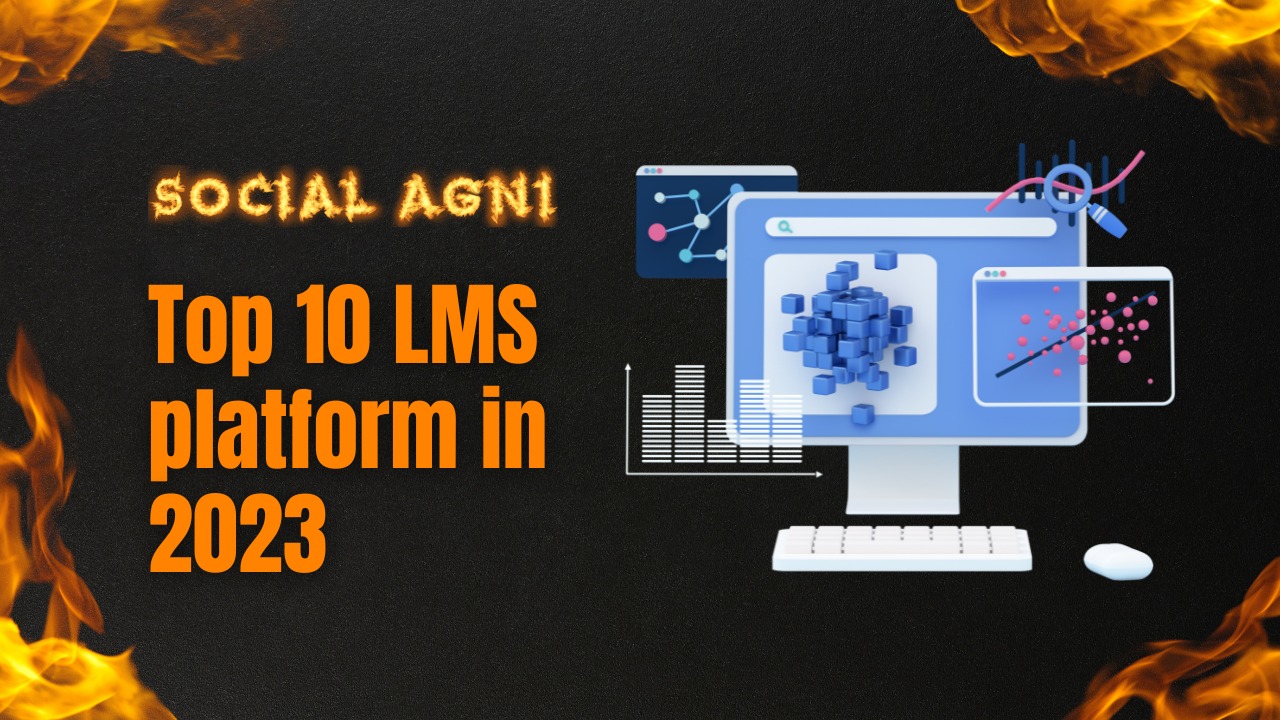In the rapidly evolving landscape of education, Learning Management Systems (LMS) have emerged as crucial tools for facilitating online learning. These platforms not only simplify course administration but also enhance engagement and collaboration among students and educators. With the advent of 2023, it is essential to explore the top LMS platforms that are leading the charge in revolutionizing education. In this article, we will delve into the ten most innovative and effective LMS platforms of the year, showcasing their features and highlighting their impact on online learning. Moodle: Moodle, an open-source platform, has long been a stalwart in the LMS domain. Its flexibility, robustness, and vast community support make it an ideal choice for institutions of all sizes. Moodle offers a plethora of features, including course management, collaborative tools, and customizable interfaces, ensuring a comprehensive learning experience. Moodle’s strength lies in its adaptability. It can be tailored to suit the specific needs of educational institutions, making it suitable for K-12 schools, universities, and even corporate training programs. The platform allows educators to create engaging courses with multimedia content, interactive quizzes, and discussion forums. Additionally, Moodle provides a variety of assessment tools, such as assignments, quizzes, and grading systems, enabling educators to track student progress effectively. Canvas: Canvas has emerged as a popular choice among educators due to its intuitive interface and extensive functionality. It offers seamless integration with various educational apps and tools, enabling instructors to curate engaging content. Canvas also emphasizes user-centric design, providing a smooth experience for both students and educators. One notable feature of Canvas is its robust communication and collaboration tools. Students can easily engage in discussions, submit assignments, and receive timely feedback. Furthermore, Canvas supports multimedia-rich content, allowing educators to create interactive lessons and presentations. The platform’s analytics and reporting capabilities enable educators to gain insights into student performance and make data-driven instructional decisions. Blackboard Learn: Blackboard Learn continues to be a dominant player in the LMS market. Renowned for its comprehensive features, such as content creation, assessment tools, and analytics, Blackboard Learn ensures a robust learning environment. It also focuses on accessibility, making education inclusive for all learners. Blackboard Learn provides a wide range of tools for content creation, including multimedia integration, interactive assignments, and discussion boards. The platform supports adaptive learning, allowing educators to personalize instruction based on individual student needs. Blackboard Learn’s analytics feature provides valuable insights into student engagement and performance, helping educators identify areas that require additional support. Schoology: Schoology stands out for its user-friendly interface and collaborative capabilities. This LMS enables seamless communication and interaction between students and educators, fostering a dynamic learning community. Schoology’s focus on personalized learning paths and differentiated instruction further enhances the educational experience. Schoology offers a comprehensive suite of tools for educators to create engaging courses, assignments, and assessments. The platform supports various content formats, such as videos, documents, and interactive modules, promoting active learning. Schoology’s robust collaboration features, including group discussions, messaging, and file sharing, encourage peer-to-peer interaction and collaborative projects. D2L Brightspace: D2L Brightspace offers a holistic learning environment, combining intuitive design with powerful features. This platform emphasizes data-driven insights to empower educators in monitoring student progress and tailoring instruction accordingly. With its mobile compatibility and interactive tools, D2L Brightspace ensures flexible and engaging learning experiences. D2L Brightspace provides a user-friendly interface for both educators and learners. It offers comprehensive features for content creation, including multimedia integration and interactive elements. The platform’s adaptive learning capabilities allow educators to personalize learning paths based on individual strengths and weaknesses. D2L Brightspace’s mobile app enables learners to access course materials and participate in discussions anytime, anywhere. Google Classroom: Google Classroom leverages the extensive suite of Google tools, seamlessly integrating them into an intuitive LMS platform. With features like assignment management, real-time collaboration, and easy communication, Google Classroom streamlines online learning processes. Its integration with Google Drive provides a convenient way to store and share educational resources. Google Classroom simplifies the workflow for educators by enabling them to create and distribute assignments digitally. The platform’s integration with Google Docs, Sheets, and Slides allows for collaborative document editing in real-time. Teachers can provide feedback directly on assignments, fostering continuous improvement. Google Classroom’s announcement feature facilitates seamless communication, keeping students informed about upcoming events and deadlines. 360Learning: 360Learning is an innovative Learning Management System (LMS) platform that focuses on collaborative learning and employee training. It offers a unique approach to online learning, emphasizing social engagement, knowledge sharing, and interactive content creation. With its user-friendly interface and robust features, 360Learning is making waves in the eLearning industry. 360Learning places a strong emphasis on collaboration and interaction among learners. It provides tools for learners to engage in discussions, share insights, and collaborate on projects, fostering a sense of community and peer learning. The platform integrates social features, allowing learners to interact with each other through comments, likes, and feedback. This social learning aspect encourages active participation and knowledge exchange. Edmodo: Edmodo provides a safe and secure online space for teachers, students, and parents to collaborate and engage in educational activities. Its user-friendly interface and robust communication tools facilitate seamless interaction between all stakeholders. Edmodo also offers a vast library of educational resources and allows educators to share content and best practices. Edmodo’s interface resembles social media platforms, creating a familiar and engaging environment for students. Educators can create and manage classes, post assignments, and engage in discussions. Edmodo’s collaboration features enable students to work on projects together, fostering teamwork and creativity. The platform also provides a library of educational resources, allowing educators to access and share materials relevant to their subjects. TalentLMS: TalentLMS is a cloud-based LMS platform that focuses on simplicity and ease of use. It provides a hassle-free experience for course creation, content management, and learner tracking. TalentLMS also offers gamification elements to enhance engagement and motivation, making it an excellent choice for employee training and customer education. TalentLMS offers a streamlined interface that simplifies the process of creating and delivering courses. The platform supports various content
